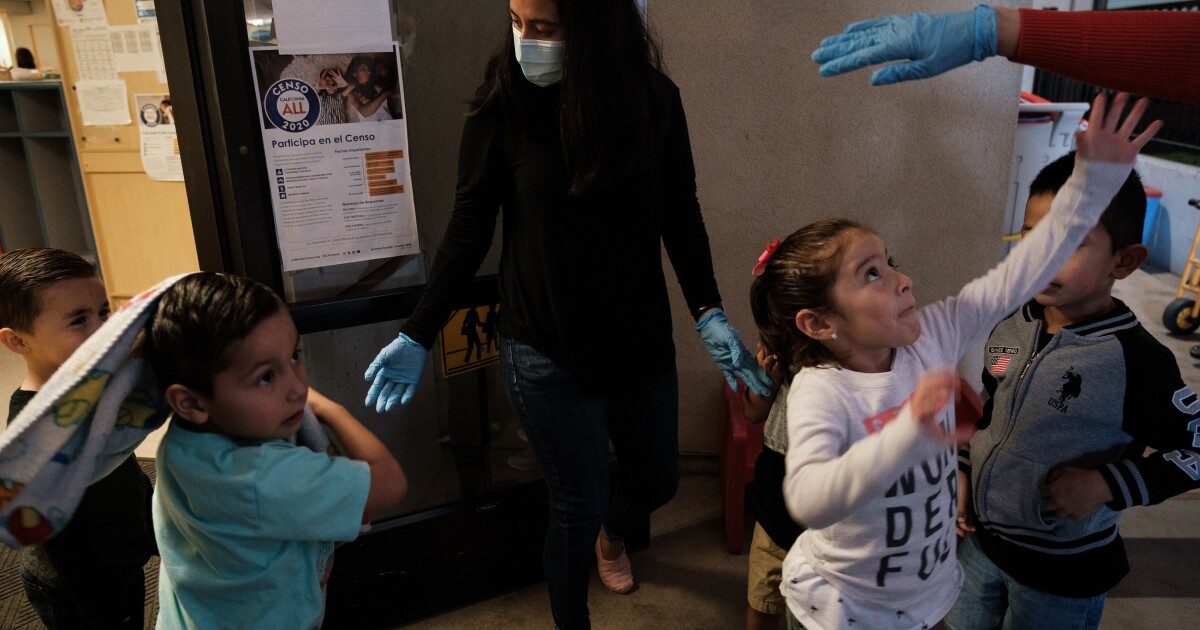Although Pfizer has been the approved vaccine to combat COVID-19 among children between the ages of 5 and 11, there are still parents who hesitate to administer it to their children.
In fact, the latest national surveys reveal that 60% of parents are afraid of side effects.
Ana Cuevas, who has four grandchildren ages seven to 10 in the Los Angeles Unified School District said she has advised her daughter not to get vaccinated even though the adults in the family are.
“We had to get vaccinated because we have close contact with a lot of people,” said Cuevas, who works in a grocery store. “My daughter and her husband sell clothes on the street, so, even though they are out in the open, we feel that there is a risk, but we do not know what the reaction of the vaccine would be in children, and we feel that it is better to wait,” he said.
Cuevas’ family is a case among millions who are waiting for other families to take the front lines to see the side effects in other minors before their closest ones.
Sylvia Reyes, another LAUSD mother, said that while she wants her young children vaccinated, her husband is reluctant to the idea.
“We have had a couple of confrontations, and I understand the fears of many people, but the disease is here to stay. This is the second year and, as you can see, we are going through the third, we cannot remain blind to reality. Children are also infected, ”said Reyes, whose children are six and eight years old.
In Los Angeles County, an estimated 900,000 children between the ages of 5 and 11 are eligible for vaccines, and about 28 million nationwide.
Pfizer experts have said the vaccine is safe, while Moderna plans to send data to the US Food and Drug Administration for “short-term” approval for children ages 6 to 11.
Parents’ fears, however, do not stop at the results that their children may experience, there are parents who are not convinced that their children need the vaccine and do not trust what government officials have been saying about the coronavirus. and the vaccine, many prefer to wait.
Nationwide, 60% of people say concerns about side effects will prevent them from vaccinating their children, according to https://quotewizard.com/
About one in four people (28%) do not believe the vaccine will work in children, and more than 37% of people do not trust the COVID-19 vaccine or government officials.
Rhode Island, Georgia, and Iowa have the highest number of people who have not vaccinated their children.
In Vermont, 100% of people who are against vaccines say they will not inoculate their children because they are concerned about side effects. Almost 59% of Ohioans surveyed are unsure whether their children need the vaccine. And in Colorado, 61% of people say they will not vaccinate their children because they do not trust the government.
The percentages change within each state, but our team of analysts found that there are five top reasons why people hesitate to vaccinate their children.
¿Young children need to be vaccinated?
Covid generally affects minors less severely than adults. Often children who become infected experience only mild symptoms, or none at all. However, children who contract Covid can develop a rare syndrome called Mis-C.
Are Covid vaccines safe for children?
Experts say that Covid vaccines are subject to the most intensive safety monitoring in history. On October 26, the FDA reported that it found no deaths or “significant adverse events” in the first trials of Pfizer’s Covid vaccine for children.
What kinds of side effects will young children get from Covid vaccines?
Young children will generally experience side effects from Covid vaccines similar to when they are teens and adults, but probably less severe, the FDA says. That’s because, from a physiological point of view, children are not small adults: their immune systems do not fully develop until they reach puberty. Therefore, your child may experience injection site pain, fatigue, or headaches after the second dose, but these side effects will not be felt the way you did. In particular, minors experienced fever and chills after injection at a significantly slower rate than adults, and with much less severity during clinical trials.
What about heart problems related to Covid vaccines and children?
The FDA said it hasn’t seen an increase in myocarditis cases in the 12 to 17-year-old age group, and that the risk could be even lower for younger children. The agency also said it has found no evidence to show that vaccines can cause MIS-C, the life-threatening complication for some children who fall ill from Covid.
–


